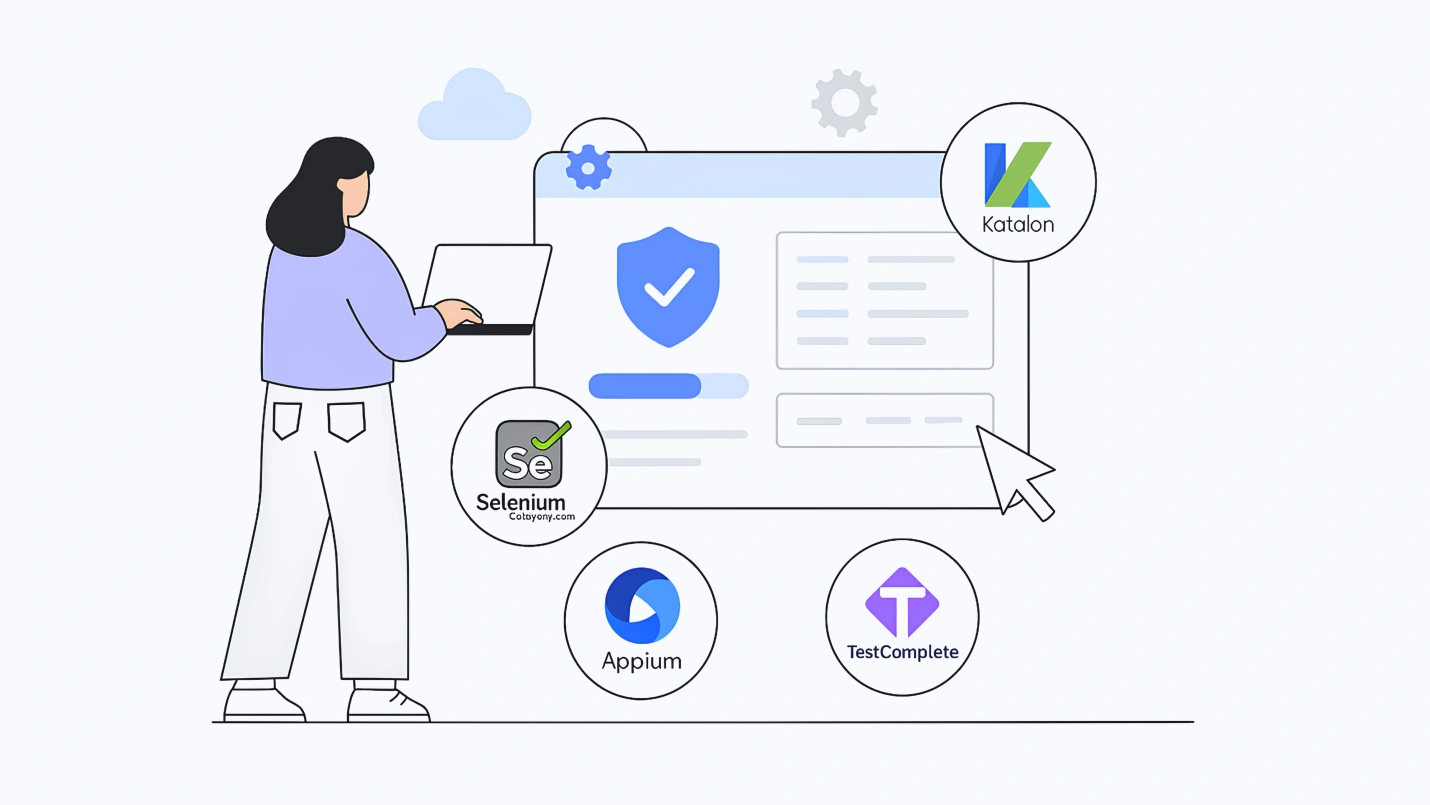In today’s fast-paced world of software development, automation testing tools prove to be of major significance in building a robust product while enabling Quality at Speed. To keep up with the ever-changing demand, organizations are taking a huge leap forward towards Continuous Integration (CI) and Continuous Deployment (CD), Agile, and DevOps methodologies. And test automation is the essence of these aspects. The objective of automation testing tools has changed from being focused on shortening testing times to better coverage and effective use of test cases.
Test automation is an enabler of successful Agile and DevOps adoption. However, the World Quality Report reveals that the low level of automation of test activities has emerged to be a critical bottleneck in the further evolution of QA and testing.
Making use of the right tools for automation testing at the right time is essential to deliver a quality product at speed. These tools make sure that the benefits of automation are delivered to the fullest. Thus, automation testing tools are a vital component of the software development process.
As more and more software development teams realize this and increase their spending, more products reach the market to grab their share of the pie. Here’s a list of the 10 best automation testing tools in 2025 to help you choose the ideal one.
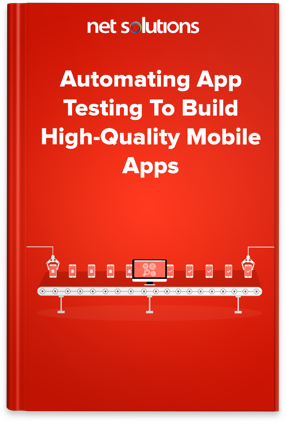
We respect your privacy. Your information is safe.
1. Selenium
“Selenium automates browsers. That’s it!”
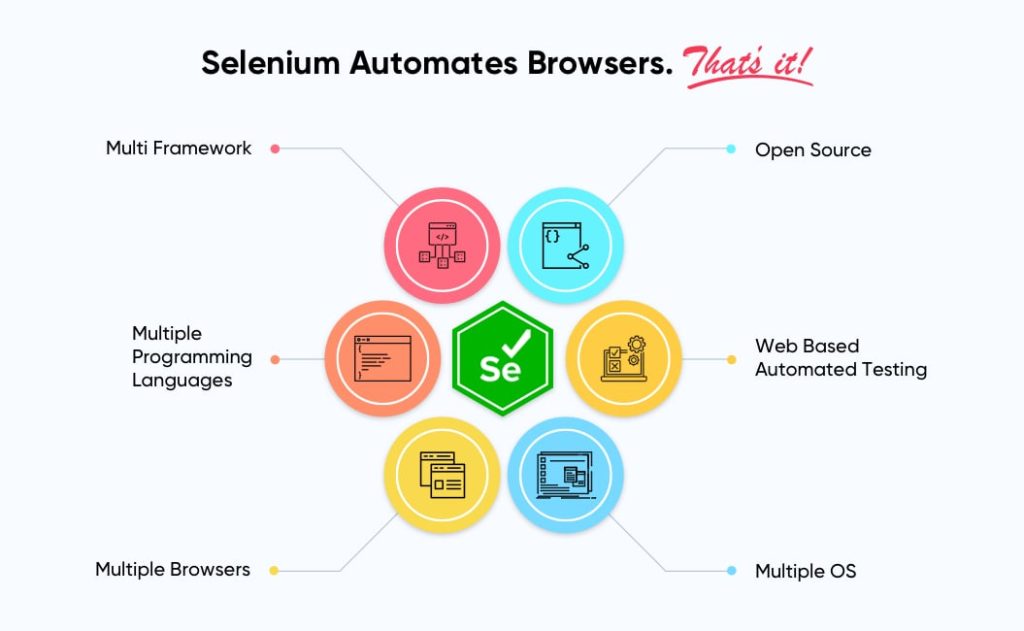
It is clear from the above-stated tagline by Selenium that it is a testing tool for automating web application testing. When it comes to web automation testing tools, Selenium ranks #1. It is an outstanding open-source automation testing tool that can be executed in multiple browsers and operating systems, supporting a considerable amount of programming languages.
In the Software Testing Tools category, Selenium has a market share of about 26.4%, and 51% of Selenium customers are in the United States.
Striking Features
- Helps create complex and advanced automation scripts.
- Base for most of the other software testing tools.
- Supports parallel test execution, thus reduces test execution time.
Website: selenium
License: Open-source
2. Appium
“Is native app automation missing from your tool belt? Problem solved.”
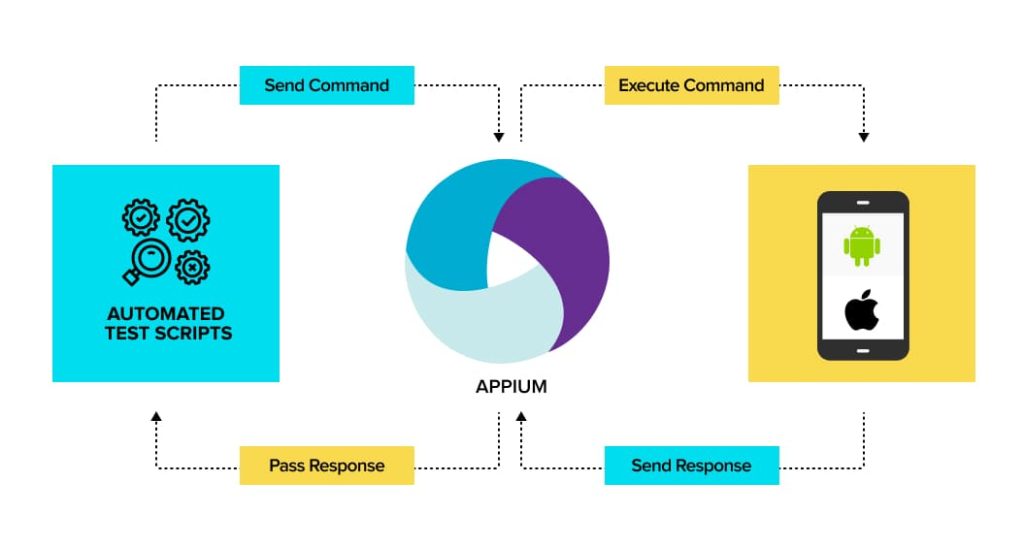
Appium is one of the open-source automated testing tools primarily intended for mobile applications. It backs automation of native, hybrid, and mobile web applications built for iOS and Android.
Appium is based on server architecture and makes use of vendor-provided automation frameworks. It is easy to set up and use. In recent years, Appium has gained immense popularity and stability, thereby emerging as one of the best mobile automation testing tools.
Striking Features
- Automates any mobile app from any language and any test framework.
- Testing native apps doesn’t require SDK or recompiling of the app.
- Drives iOS, Android, and even Windows apps using the WebDriver protocol.
Website: appium
License: Open-source
3. Katalon Studio
“An all-in-one test automation solution.”
These above-mentioned words aptly describe the Katalon automation testing tool. It is an automation testing tool that supports both web and mobile app development environments.
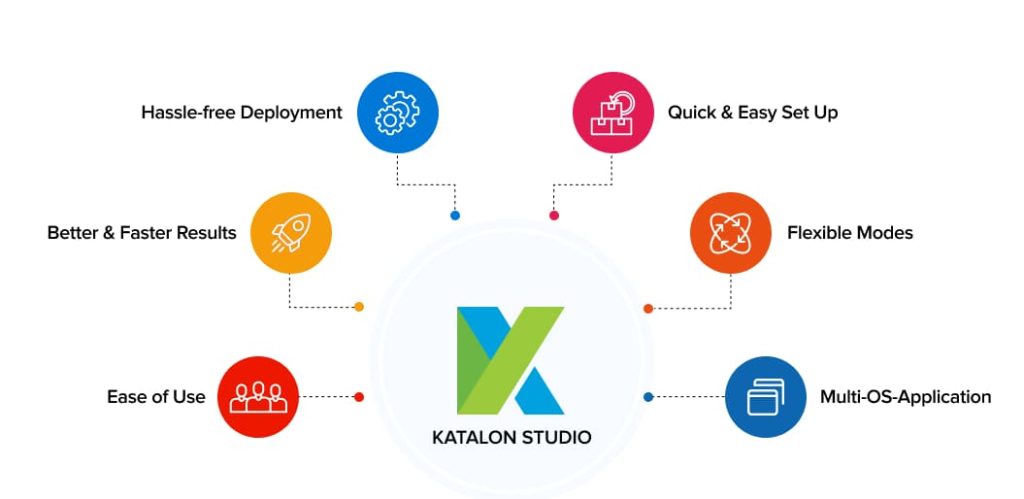
It works on top of Selenium and Appium, thereby simplifying API, web, and mobile automation tests. It can be integrated with a variety of other tools such as JIRA, qTest, Kobiton, Git, Slack, and more.
Its robustness, popularity, and stability can be inferred from the fact that it recently got recognized as a Gartner Peer Insights Customers’ Choice for the software test automation market.
Striking Features
- Versatile as it runs on Windows, macOS, and Linux
- Hundreds of built-in keywords for creating test cases
- Minimum programming skill required to use this tool
Website: katalon
License: Proprietary
4. Cucumber
“Tools & techniques that elevate teams to greatness.”
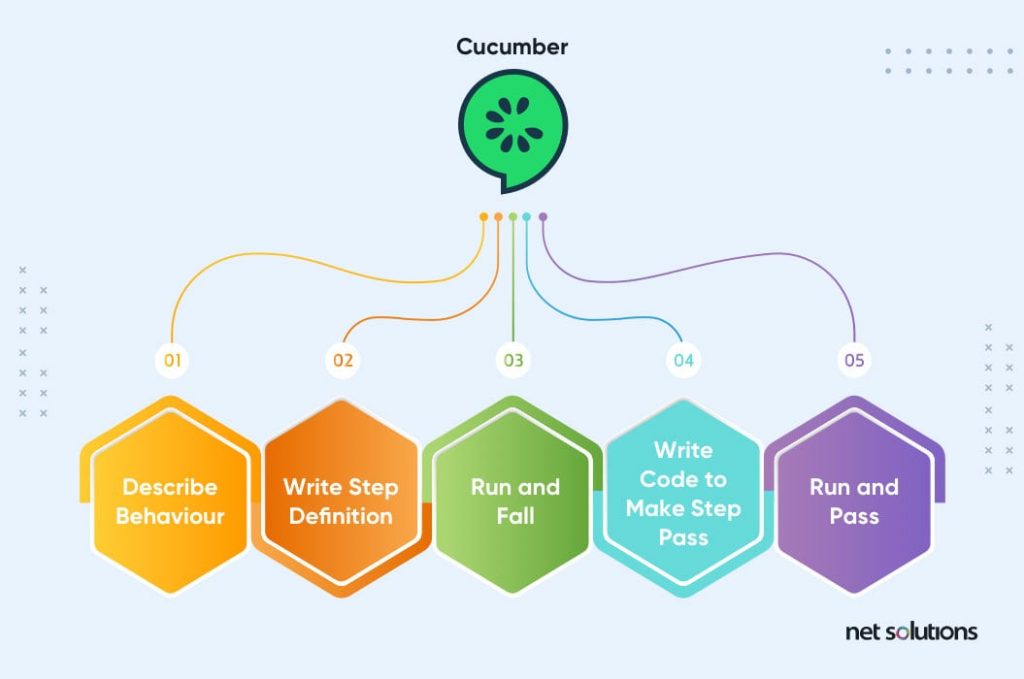
Cucumber is an open-source Behavior Driven Development (BDD) tool. It has an impressive list of users, including PayPal and Canon and, supports several languages. Being used by 20% of testers, Cucumber supports only the web environment. It’s been built with the philosophy of delivering an enhanced end-user experience.
Striking Features
- Code can be executed on different frameworks like Selenium.
- Test code is written in simple English called Gherkin.
- It supports languages like Ruby, Java, Scala, Groovy, etc.
Website: cucumber
License: Free
5. HPE Unified Functional Testing (UFT)
“A robust tool, given by Hewlett-Packard Enterprise”
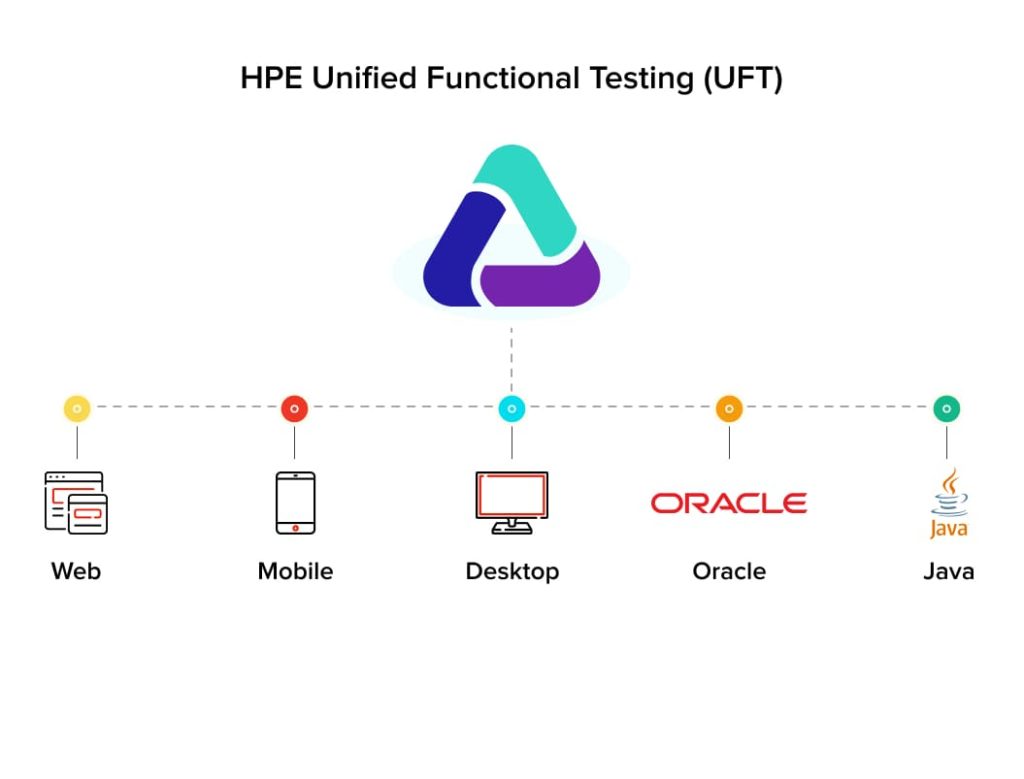
HPE Unified Functional Testing, formerly known as QuickTest Professional (QTP) is one of the best cross-platform automation testing tools. It brings developers and testers under one roof and provides excellent automation testing solutions, thereby making functional testing cost-effective and less complex.
It can automate Web, Desktop, SAP, Java, Oracle, Mobile, and Visual Basic, amongst other applications. The list of development environments that it can automate is huge and it can be used with various types of software testing. It performs functional, and regression testing through a user interface such as a native GUI or web interface.
Striking Features
- Uses VBScript as the scripting language.
- Supports data-driven testing.
- Offers cross browser & multi-platform compatibility.
Reference Website: HP QuickTest Professional
License: Proprietary
6. WorkSoft
“Undisputed Leader in Test Automation for Enterprise Packaged Apps”
WorkSoft–an automation testing tool for SAP–offers the industry-leading Agile and DevOps continuous automation platform that is designed and engineered to tackle the world’s most complex automation problems.
It offers the only code-free continuous test automation platform. This platform is built to satisfy the needs of large enterprises that deal with mission-critical business processes, whose testing is vital across multiple applications and systems.
Striking Features
- The tool can be deployed even if an SAP project is in implementation, upgrade or maintenance stage.
- It can test and automate SuccessFactors, Concur, Syclo, Ariba Network, SAP Fiori User Experience (UX).
- It provides an integrated test data management tool.
Website: worksoft
License: Proprietary
7. IBM Rational Functional Tester (RFT)
“Get automated testing capabilities for functional, regression, GUI and data-driven testing.”
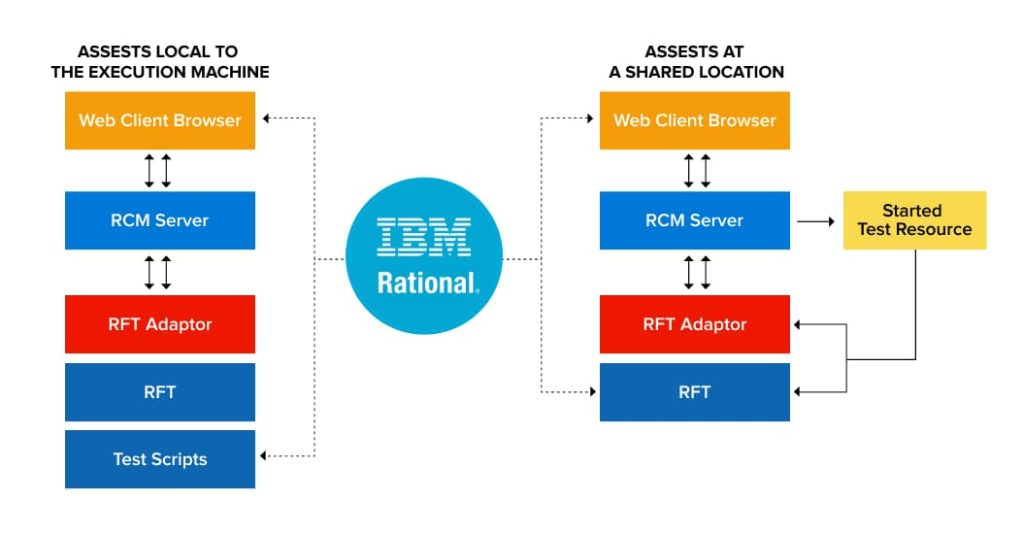
Rational Functional Tester (RFT) is a commercial automation testing tool from IBM. This tool is mainly intended for automated functional testing and regression testing, GUI testing, and data-driven testing.
This automation tool supports many development environments including Siebel, Net, SAP, Java, PowerBuilder, Flex, and Dojo, amongst others.
Striking Features
- Storyboard testing feature helps visualize and edit tests using natural language and application screenshots.
- Supports 2 scripting languages: Java and VB.Net.
- Integrates tightly with IBM Rational Quality Manager (test management tool).
Website: https://www.ibm.com/products/rational-functional-tester
License: Proprietary
8. Telerik Test Studio
“LOVED by QAs and Developers Alike”
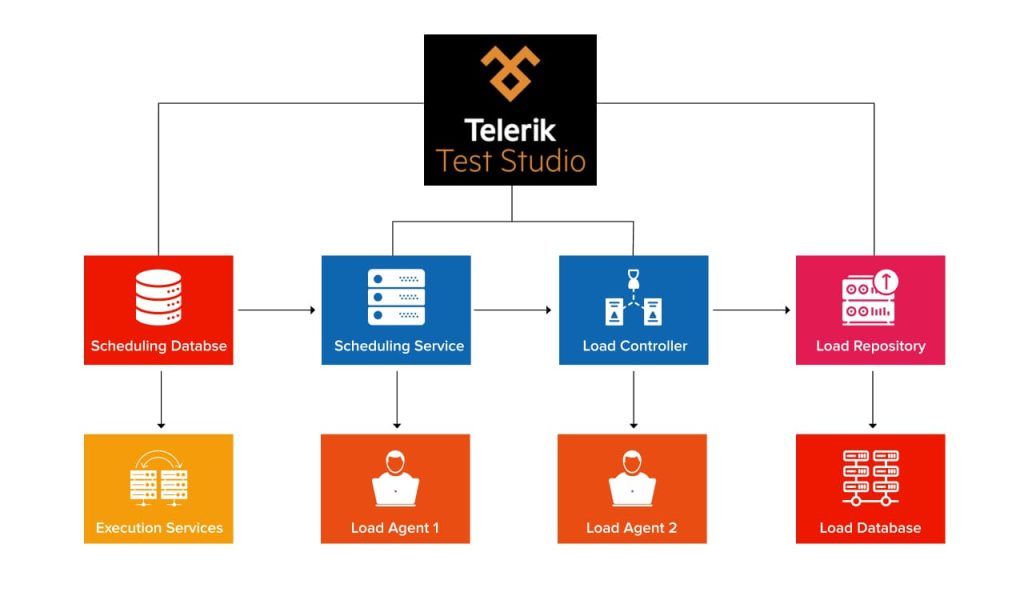
Telerik Test Studio is one of the best automation tools that provide a comprehensive test automation solution. It provides you a platform to test desktop, web, and mobile applications.
It provides cross-browser support and has a record & playback tool that is well-suited for GUI, performance, load, and API testing. Telerik Test Studio supports automating applications built with HTML5, Angular, AJAX, JavaScript, Silverlight, WPF, MVC, Ruby, and PHP in addition to iOS & Android applications.
Striking Features
- Supports real coding languages like C# and VB.NET
- Supports 2 scripting languages: C# and VB.Net
- Allows scheduled tests, parallel test execution, and has robust test reporting features.
Website: Telerik teststudio
License: Proprietary
9. SoapUI
“Build Better. Test Smarter”
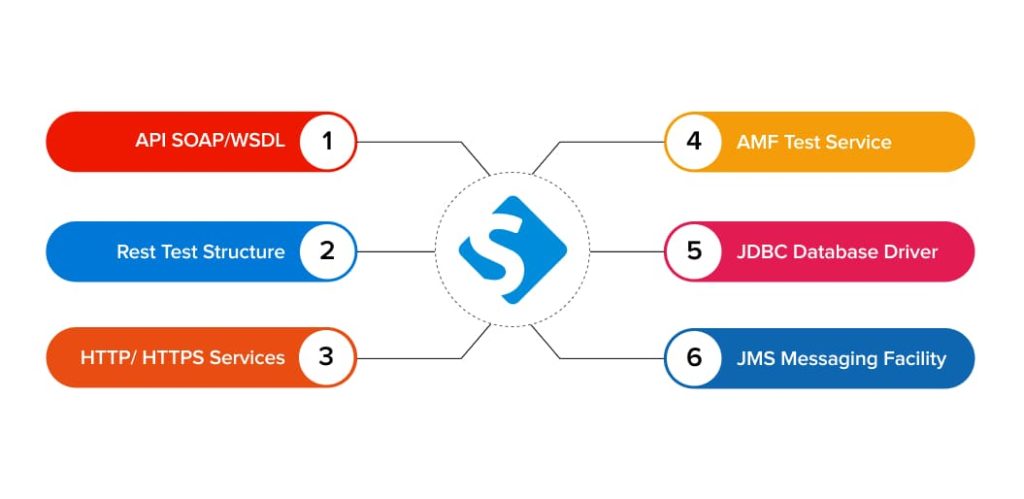
SoapUI is an open-source functional testing tool designed by Smartbear–a leader in Gartner Magic Quadrant for Software Test Automation. It provides a comprehensive API Test Automation Framework for Representational State Transfers (REST) and Service-Oriented Architectures (SOAP).
It is not an automation testing tool for web or mobile app testing; however, it can be a tool of choice to test API and services. It is a headless functional testing application, especially for API testing.
Striking Features
- Scripts can be reused easily.
- Has drag and drop, point-and-click test generation.
- Allows asynchronous testing.
Website: soapui License: Open-source
10. TestComplete
Powerful and easy-to-use functional test automation tool from SmartBear.
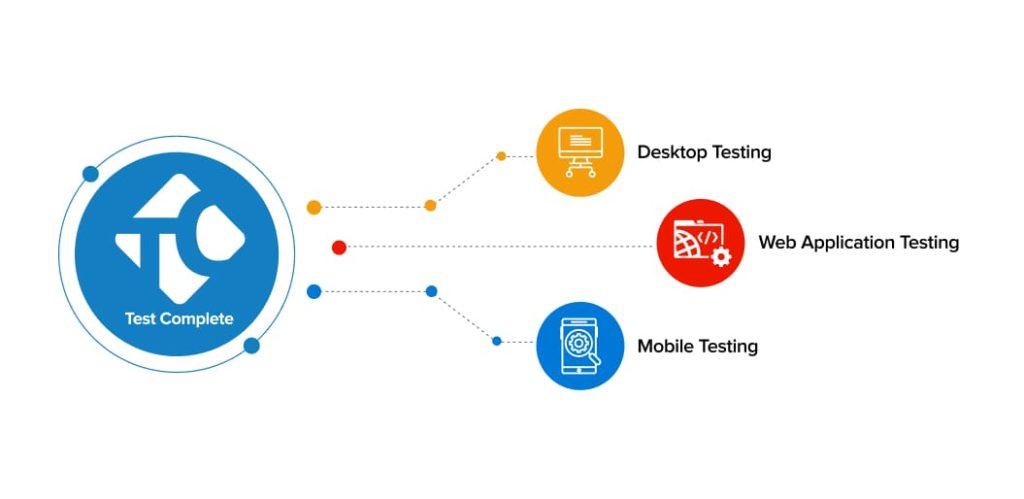
TestComplete is one of the top automation testing tools used to test desktop, mobile, and web applications. It supports various scripting languages like VBScript, Python, and JavaScript, as well as various testing techniques such as keyword-driven testing, data-driven testing, regression testing, and distributed testing.
Its robust record & replay capabilities allow you to build and run functional UI tests. This test automation tool can also be easily integrated with other products under the same brand named SmartBear.
Striking Features
- Scripts can be reused easily.
- Creates complex automated test scripts without writing a single line of code.
- Easy-to-use visual record and playback.
Website: Smartbear Product
License: Proprietary
Automation Testing Tools: Final Thoughts
No real-world software is 100% free of bugs or issues. The best approach is to thoroughly test the software and fix the bugs found. You need an experienced, vetted, and focused software quality assurance testing team you can trust to do that.
Apart from the list mentioned in the blog, there are a plethora of other tools that aim at different types of testing. Some of them are open source automation tools, while others are licensed. However, the choice of testing automation tools depends entirely upon the business requirement but with a single aim: quality software at speed.
Quality software delivered at speed is always the top priority at Net Solutions. Our QA services, including automated testing services, will help you establish control over your product’s life cycle, monitor every development stage, and give accurate product quality information.

